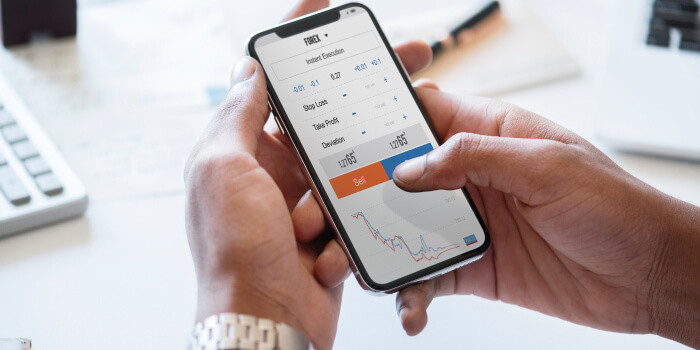The healthcare industry is facing a boom in digital health tech. Patients these days, prefer to have complete access to their healthcare information- without visiting their hospital or clinic in person. This paved the market for tech solutions like mobile apps, which could bridge the gap between the patient and care providers without requiring their physical presence.
Healthcare apps accomplish something that healthcare delivery systems, couldn’t in the past, which is providing great convenience and ease to the patients. That’s why mobile apps are here to stay. Mobile healthcare apps can allow patients to connect to their healthcare providers through a video and from the ease of the patients’ own home. The technology which has been used in all other fields has taken a slow coming to healthcare, but now the industry cannot survive very long without it. Mobile healthcare apps provide what every patient needs, and can even ease medical data access for healthcare providers. CVS Health has even rolled out virtual visits where patients with minor illnesses can connect to doctors 24/7 for $59.
It is estimated that tech solutions outside of the hospital will grow by 30% in 2019 and cross the $25 billion mark by the end of the year. In this article, we explore 10 healthcare apps your healthcare business needs to avoid being left out.
- AirStrip: Airstrip breaks geographic, technological and workflow barriers, efficiently connecting clinicians and patients. The app aims to improve healthcare delivery and build engagement and collaborations for patient-centered healthcare. Additionally, Airstrip can offer predictive insight to improve detection of hemodynamic instability.
- DoseMeRX: One of the difficult challenges a physician may have is constantly updating the patients’ dosages. This app reduces the time taken to adjust the dosage as well as the number of assays for therapeutic drug monitoring a range of drugs. The DoseMeRX app uses SMART and FHIR technologies to directly integrate into the physician’s workflow and EHR. It monitors a patient’s previous response to therapy, as well as their age, weight and current dosage administration.
- Forecast Health Risk Prediction and Prevention: This app is basically an electronic health record, and allows physicians and care-providers monitor unplanned readmissions, medication non-adherence, improper utilization of hospital and other such events. Patient-specific guidance is also provided to mitigate all risks.
- SMART Precision Cancer Medicine: This clinico-genomic mobile app covers almost all the features required for point-of-care conversations. This app can visualize genomic-information of the patient in real time and compares the detected somatic gene mutations with a population level set of data. Versions of the app are expected to evolve in parallel with external knowledge bases.
- 1upHealth: This app acts as a platform to aggregate patient data from external systems at once. Healthcare providers can view data sources of the patients based on a 1upHealth patient application. A timeline of the patient will include their demographic, their medical history, history of treatments, and lab condition.
- CarePassport: CarePassport aims to act as a passport for patients when accessing medical care. This will allow patients to access all their medical history, including medical images, lab data, dental records, and clinical reports from any healthcare provider. They consolidate any medical information in CDs, physical reports, lab images, Apple Watch, Health Kit, Fitbit, CDA Files, JPEG, PDF of all medical reports or any self-medicated reports as well.
- ClotMD: ClotMD lets patients and clinicians therapeutically use warfarin, a Vitamin K antagonist on a computer or mobile device. This app can connect patients on anticoagulation medicine to their clinicians for real-time communication.
- Doximity: Docs in proximity, get it? This app provides the user access to the largest medical professionals network in the US comprising of more than 70 percent of all physicians across the country as members. The benefits include the ability to find any doctor, pharmacist, medical practitioner, nurse or physician assistant.
- CareAware Connect: This is a solution to complete workflows and manage clinical communications on a single device. Multiple teams, from care teams to ancillary staff can connect and communicate to improve coordination. CareAware can also be used with bar codes to manage medication administration with patients in a mobile directory.
- Patient Keeper: Does this one sound familiar? It’s the mobile version of the Patient Keeper Computerized Patient Order Entry (CPOE) system. This allows health care providers to order lab tests, radiology, medication, and similar services for patients across all hospital departments. Catalogues for tests and procedures are also on the app so you don’t need to carry them around or rebuild lists for new patients. It also reduces organizational inefficiencies and let providers keep track of all patient data.
Without a doubt, 2019 is going to be a busy year for healthcare providers, given the integration of bigger players in the field. Healthcare is nose-diving into technology so make the most of every app and tool to effectively engage with patients. If your healthcare business would like to invest in bigger devices or machines, consider taking a small healthcare business financing option with us.







